A controversial topic is raising a baby on a vegan diet. Today we are going to answer the question are vegan milk substitutes safe for babies who don’t drink cow’s milk? And if so, what’s the best plant based milk to buy for baby?
Raising a Vegan Baby in the News
I’m in a lot of mom groups, and one of the controversial topics I see pop up in my feed is about raising a vegan baby. We read stories about plant-based babies being hospitalized and removed from their parent’s care and wonder if there are real dangers in cutting out dairy and meat at such a young age. While these are extreme cases and are likely a rarity, we unfortunately don’t have much legitimate research out there to evaluate the health outcomes of milk substitutes in babies. But what do the official recommendations say?
Current Recommendations on Vegan Milk Substitutes for Babies
It’s recommended that baby transition to whole (3.25% fat) milk at one year of age and to avoid any skim or partly skim milk before 2 years old. It’s also currently recommended that parents avoid giving fortified soy milk until 2 years of age. Rice or nut beverages should also not be used as child’s main milk source as these milks are much lower in calories and fat.
In the United States, the  position of the American Dietetic Association (ADA) is that appropriately planned vegetarian diets, including vegan diets are healthful, nutritionally adequate and may provide health benefits. These diets are appropriate for all stages of life from pregnancy to older adults (including infancy). Like in Canada, the ADA recommends that for the first six months all babies should be exclusively breastfed and if breastfeeding is stopped, the use of an iron-fortified formula (soy formula for vegans) be introduced. Between 1 and 2 years of age, vegan infants should continue to be given soy formula. Fortified soy milk is a good alternative for after the 2 year mark, but not before then. As with in Canada, milk alternatives like soy, rice, almond, hemp and others are not recommended in first or second year of life as they don’t offer enough calories and fat to be considered nutritionally adequate.
Comparing the Nutrient Breakdown of Milk and Vegan Milk Substitutes
Unclear where these recommendations come from? Let’s take a look at the nutritional composition of some of the different milks on store shelves.
Nutrition Breakdown of Cow’s Milk vs. Vegan Milk Alternatives
Cow’s milk is currently considered the gold standard for babies at 12 months thanks to its unique caloric and nutrient content. One serving of 3.25% milk contains:
- 160 calories
- 8 grams of protein
- 8 grams of fat
- Calcium, Vitamin D and Vitamin B12 for a growing babe
These nutrients are particularly important for babies as they grow. Fat is important for brain development, protein for muscles, Vitamin D and Calcium for bones, and adequate Vitamin B12 is key for preventing failure to thrive. If we look carefully at the list above, fortified soy milk is the closest vegan substitute to cow’s milk with similar amounts of protein, calcium, vitamin D and Vitamin B12. It’s also readily available so it’s an easy recommendation to make for vegan families. The only nutrient of concern is that soy milk only has half the amount of fat as 3.25% cow’s milk and is half the calories.
Pea milk (like Ripple), a new trendy option on store shelves, is less readily available for families, but it does have a comparable nutritional breakdown to cow’s milk and provides slightly higher fat content than soy milk (4.5g vs 4g).
In Canada, however, Ripple is not fortified the way it is in the USA, so it is NOT equivalent to Soy milk and also not an appropriate substitution for cows milk.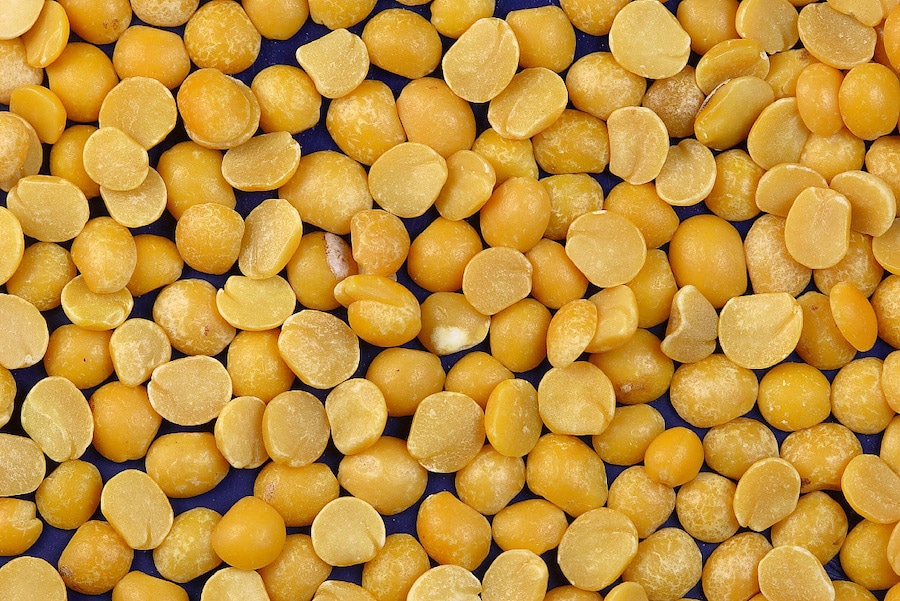

Bottom Line on the Safety of Vegan Milk Substitutes for Plant-Based Babies
Raising a baby vegan is a personal decision, and since we know that there are lots of benefits to eating more plant-based, I don’t think it’s necessarily a bad decision. Cow’s milk can be an easy way to get protein, fat, and a variety of important minerals for growth, but it doesn’t necessarily have to be essential. With the right planning, it’s totally possible to create a nutritionally adequate diet for your growing babe. If you’re thinking of raising a vegan baby, I highly suggest working with a registered dietitian to make sure your baby is getting all of the essential nutrients he or she needs.
If you liked this post, you may like:
Goat Milk vs Cow’s Milk vs Sheep Milk for Babies
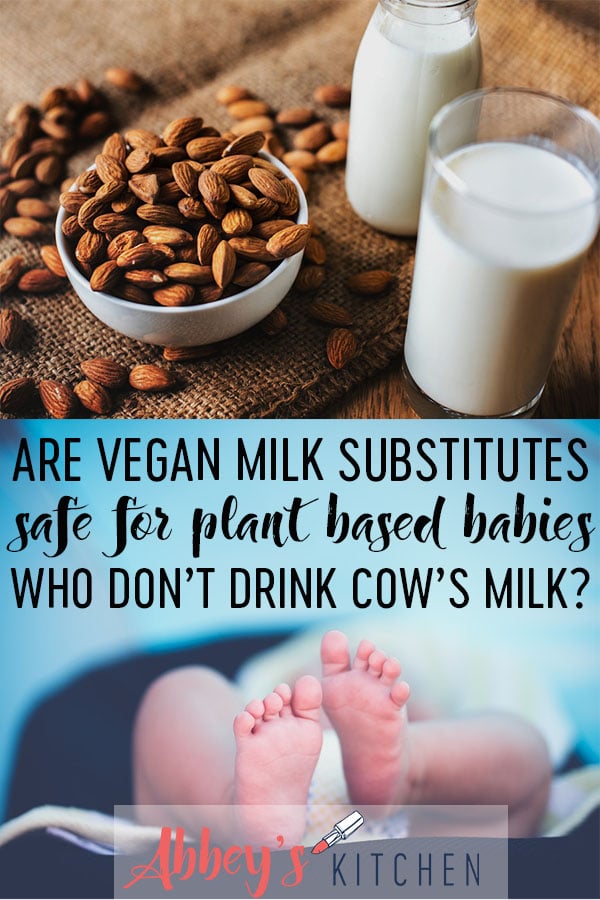
Updated on October 19th, 2020

Abbey Sharp is a Registered Dietitian (RD), regulated by the Ontario College of Dietitians. She is a mom, YouTuber, Blogger, award winning cookbook author, media coach specializing in food and nutrition influencers, and a frequent contributor to national publications like Healthline and on national broadcast TV shows.

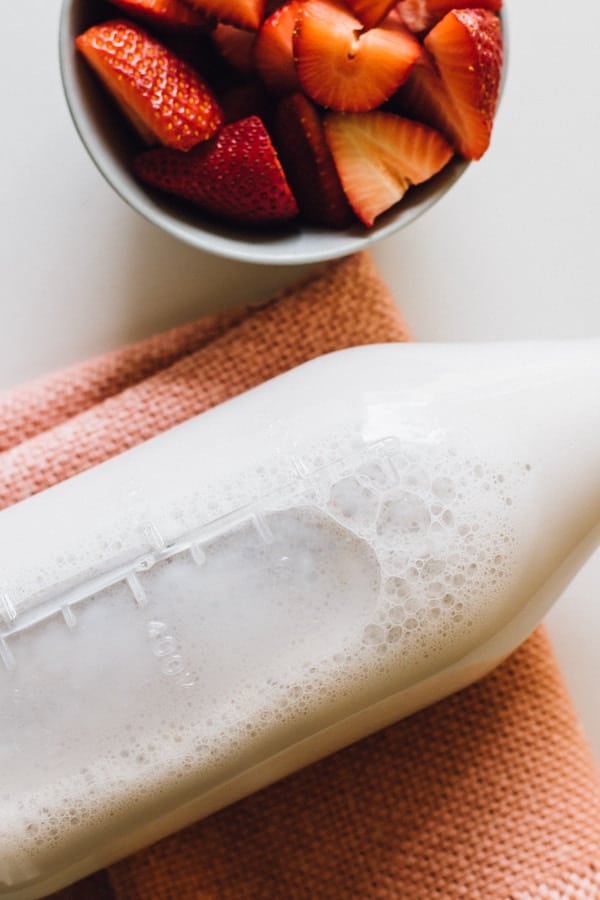
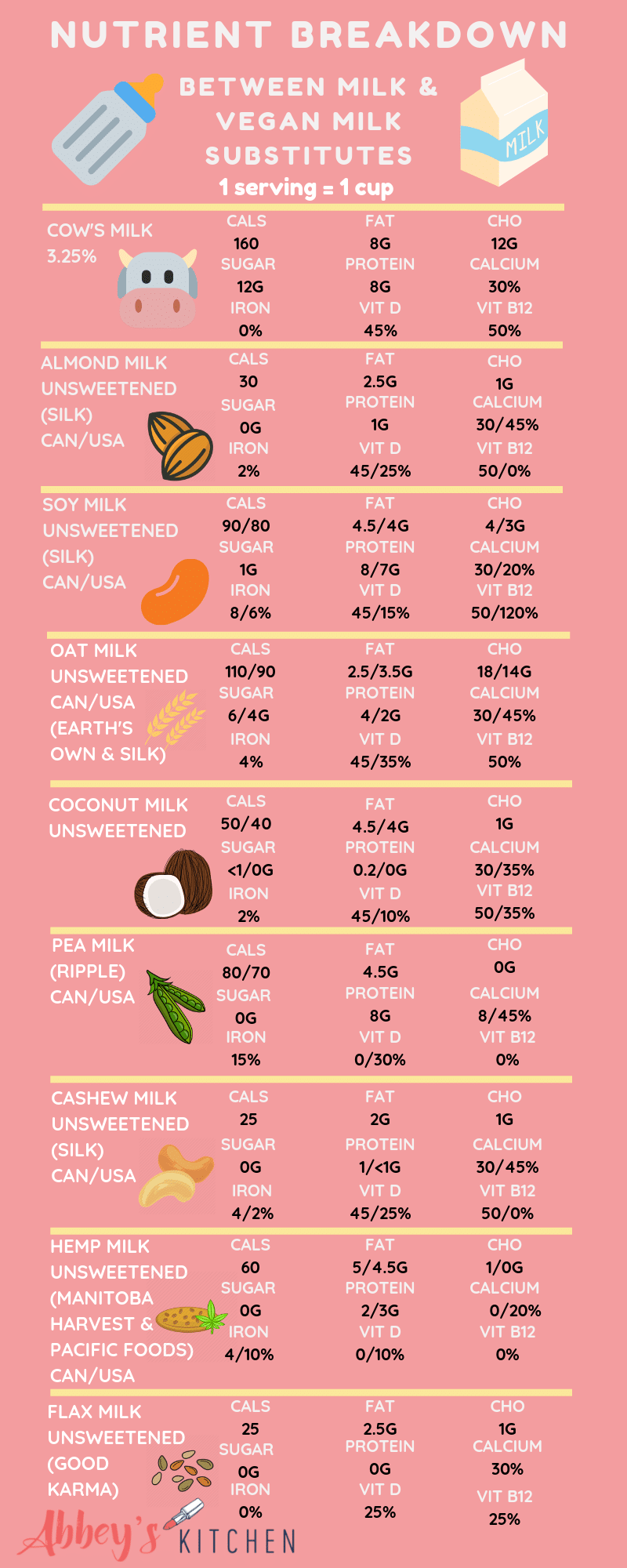
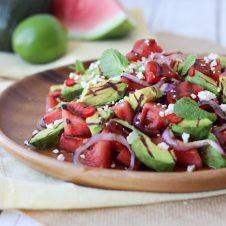
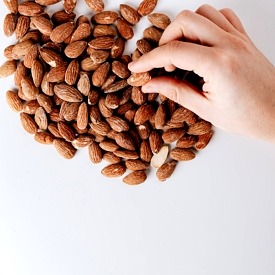


Shelby says
So glad I found this post. My husband and I don’t drink cow’s milk at home and felt weird about giving it to our daughter when she hits 1 year old, so we’ve asked two different pediatricians about it. Neither provided a good explanation for why cow’s milk is better but insisted we stick with that. I’ve been uneasy about it but this breakdown just gave me some peace of mind. I can now give cow’s milk without wondering if it was actually the right decision. Thanks!
Abbey Sharp says
Awesome! So glad it helped. Thanks for sharing love
Lauren says
I just saw this and wish I would’ve seen it before messaging you on Facebook about a month ago! We are currently still half and half soy and pea. My eldest says his favorite is Vanilla Pea which is comparable sugar wise to soy anyway. I don’t love the sugar content of either but they do seem like the best options for our family!
Abbey Sharp says
do what works!
Farrah says
Great breakdown of the different types of milk out there! I love how comprehensive and informative your posts always are!
Abbey Sharp says
Thanks so much Farrah! I appreciate it
Angela Cardamone @marathonsandmotivation.com says
This is really interesting. I breastfed both my children and had not ever considered putting them on a vegan diet.
Abbey Sharp says
Yeah! Everyone is different
jill conyers says
Always a wealth of info at Abbeys Kitchen. You bring up several good points that I have never thought of.
Abbey Sharp says
Thanks Jill
Lucy Edwards says
I’m surprised at how high in protein pea milk is- I’ll have to look out for it. I usually go for oat milk and sometimes coconut.
Abbey Sharp says
Yeah, pretty good source of protein!